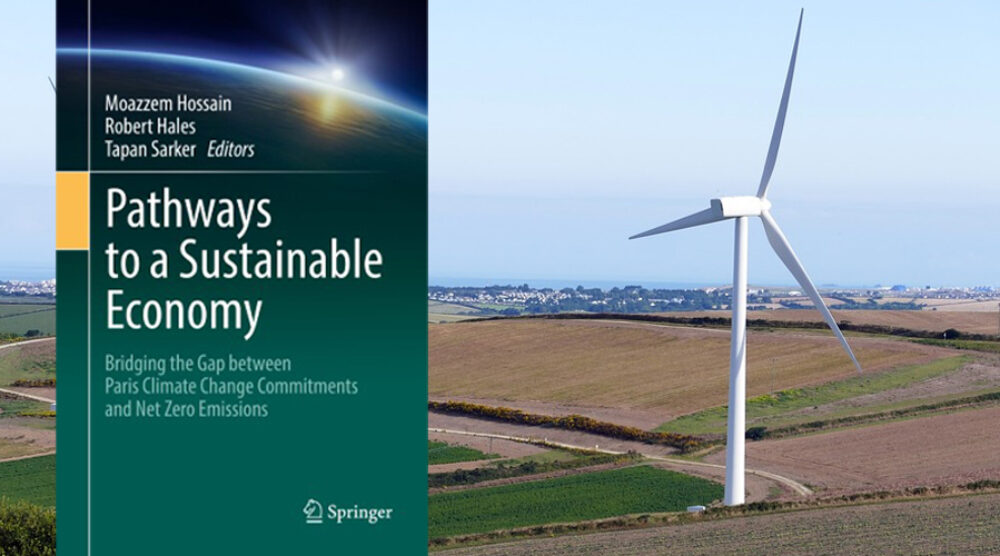A group of Griffith researchers have contributed to global challenges through the publication of their research. With 2,397 chapter downloads, Pathways to a Sustainable Economy, Bridging the Gap between Paris Climate Change Commitments and Net Zero Emissions (2018) is among the top used publications on SpringerLink that concern one or more of the United Nations Sustainable Development Goals (SDGs), namely SDG 13 Climate Action.
Edited by Adjunct Associate Professor Moazzem Hossain, Dr Rob Hales and Associate Professor Tapan Sarker from the Department of Business Strategy and Innovation, the focus of the book is to identify challenges facing organisations in achieving zero greenhouse gas emissions by 2050 and a new energy economy, and to explore solutions from various sectors of the economy to enable the transition to a zero emissions future.
The book is divided into three parts, with an introductory statement on growth and sustainability. Part one discusses strategies towards a sustainable economy under a zero emissions goal. Part two contains industry specific case studies focusing on construction and related activities. Part three is devoted to country specific case studies from the Asia-Pacific region.
Each of the chapters address one or more of the following issues: restoration, mitigation, adaptation and/or promoting resilience in the face of climate change as part of achieving a sustainable economy.
The volume is multi-disciplinary in nature, drawing on various disciplines in social science, business, environment and policy, and will be of interest to UN development agencies, academic institutions, government policy makers, NGOs and business leaders.
Other contributors from the Department of Business Strategy and Innovation include Associate Professor Ki-Hoon Lee and Dr David Herold with their chapter Carbon disclosure strategies in the global logistics industry: Similarities and differences in carbon measurement and reporting. Dr Paul Howard also contributed a chapter titled From “harmony” to a “dream”: China’s evolving position on climate change.
The authors also acknowledge and appreciate the support provided by Professor Brendan Mackay, Director, Griffith Climate Response Centre.



